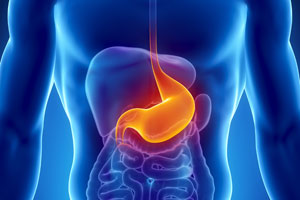Irritable Bowel Syndrome, A Different Diagnosis
 With no known cause or cure, patients suffering from irritable bowel syndrome can be dealing with one of the most uncomfortable conditions to ever inflict the human body. Characterized by chronic abdominal pain, bloating, discomfort and alternating diarrhea and constipation, it's definitely a syndrome that needs extensive and personalized treatment and care, yet many patients go years with seeing little to no help. This article will cover new, innovative approaches to irritable bowel syndrome.
Most medical practices merely manage symptoms, but leaders in the industry are discovering new ways to look at and treat this devastating condition. Through detailed testing and close examination of patient's medical history, it is easier to find the true causes and triggers. What's most important is being educated from all angles and options about your condition, from what lessens the pain and what increases it, to having a strong patient-doctor relationship. Let's take a look at what that means.
With no known cause or cure, patients suffering from irritable bowel syndrome can be dealing with one of the most uncomfortable conditions to ever inflict the human body. Characterized by chronic abdominal pain, bloating, discomfort and alternating diarrhea and constipation, it's definitely a syndrome that needs extensive and personalized treatment and care, yet many patients go years with seeing little to no help. This article will cover new, innovative approaches to irritable bowel syndrome.
Most medical practices merely manage symptoms, but leaders in the industry are discovering new ways to look at and treat this devastating condition. Through detailed testing and close examination of patient's medical history, it is easier to find the true causes and triggers. What's most important is being educated from all angles and options about your condition, from what lessens the pain and what increases it, to having a strong patient-doctor relationship. Let's take a look at what that means.
Irritable Bowel Syndrome – A Brief Overview
Despite having no direct effect on life expectancy, irritable bowel syndrome comes with a high social cost, leading to extreme, often suicidal, depression. This is to say nothing of the chronic pain, fatigue and other syndromes that can make one miss out on the important things in life. Therefore, this disease is very serious. Yet, while there are no known causes, there are several key indicators that researchers consistently look for. The first and most important potential cause is infection. After a gastrointestinal infection, the risk for developing IBS increases six times. Other risk factors include prolonged anxiety, food allergies, debilitating depression, fibromyalgia, chronic fatigue syndrome, extended bouts of fever, as well as being at a young age. However, the most prevalent theory postulates IBS is caused by a disorder between the brain and the gastrointestinal tract, sometimes with additional abnormalities in the immune system and gut flora. It may sound confusing, but there is a connection between all these symptoms. Doctors that gloss over this area seem to have a poor understanding of complete digestive health. The enteric nervous system has been called the "second brain," because it consists of a nine-meter long line of more than 100 million neurons that stretches from the anus to the esophagus. The nerves are embedded in sheaths along the gut or alimentary canal, which has more neurons than either the spinal cord or the peripheral nervous system. So, understanding this system really gives us a bigger picture to better treating IBS.
Let's look at all the symptoms:
- Cramps or lower abdominal pain.
- Altered bowel habits in volume, frequency and consistency, as well as an increase in frequency and urgency to urinate.
- Gastroesophageal reflux (heart burn.)
- Dysphagia (difficulty swallowing.)
- Nausea and dyspepsia (indigestion.)
- Impaired sexual function.
- Dysmenorrhea (painful menstruation.)
These other symptoms may suggest autoimmune involvement seen in inflammatory bowel disease:
- Joint pain and arthritis.
- Arthralgia (painful inflammation and stiffness of the joints.)
- Pericarditis (a condition in which the sac-like covering around the heart [pericardium] becomes inflamed.)
- Pyoderma gangernosum (ulcers and tissue becomes necrotic with chronic ulcerative wounds within the colon.)
- Erythema Nodosum (inflammation of the fat cells under the skin with red nodules.)
- Ocular inflammation (general term for inflammation affecting any part of the eye or surrounding tissue.)
- Pericholangitis (inflammation of the bile ducts.)
- Pharyngeal ulceration (ulcers in the throat.)
- Venous thrombosis (increased blood clot formations and risk of clots.)
Many biofeedback studies have proven that addressing this heightened nerve sensitivity improves patient results. Therefore, how you approach this disease is pivotal. You must address the various coinfections, hormonal and neurotransmitter imbalances, chemical toxicity, allergic reactions and food sensitivity and overall digestive health. The conventional model merely wants to mask symptoms, whereas our integrative model is designed right from the start to truly treat the causes. Let's look closer.
The Integrative Route Goes Deeper Than Conventional Medicine
 Many treatments have been found to have better outcomes than a placebo, including new diet regimens, increasing fiber intake, antispasmodics and peppermint oil. Diet is probably the most key, as many patients with irritable bowel syndrome have allergies or food intolerances. This is known as "visceral hypersensitivity" and these markers are helpful for treating and reducing these symptoms, however, IBS treatment is really about balancing the entire body, including the nervous system.
Restricting the amount of fructose, lactose and carbohydrates consumed seems to make a big impact. It also helps if you offset poor nutrition with supplements and nutritional therapy, but diet alone won't change your condition. Strangely, the conventional method rarely even addresses diet!
Depending on the type and severity of irritable bowel disease, some medications will assuage the symptoms. Stool softeners, laxatives, opiates and even certain classes of anti-depressants can do wonders. However, if these drugs are prescribed and nothing else like it is practiced in the conventional model, it will do little to change the cycle of IBS.
If you just throw medication at these triggers, it won't make the deeper changes a patient needs. Much of these drug approaches can be done effectively using natural techniques, making it much easier on the body – this is the core of the integrative model. Integrative medicine recognizes that IBS isn't a disease that can be treated with medication alone – again, it's about balancing the body and these various triggers.
Digestive health instead involves deeper testing and a more complete treatment plan. When infections are treated, nutrients increased, triggers eliminated, hormones and neurotransmitters balanced and microbial bacteria restored, it's been found that patients do much better.
Many treatments have been found to have better outcomes than a placebo, including new diet regimens, increasing fiber intake, antispasmodics and peppermint oil. Diet is probably the most key, as many patients with irritable bowel syndrome have allergies or food intolerances. This is known as "visceral hypersensitivity" and these markers are helpful for treating and reducing these symptoms, however, IBS treatment is really about balancing the entire body, including the nervous system.
Restricting the amount of fructose, lactose and carbohydrates consumed seems to make a big impact. It also helps if you offset poor nutrition with supplements and nutritional therapy, but diet alone won't change your condition. Strangely, the conventional method rarely even addresses diet!
Depending on the type and severity of irritable bowel disease, some medications will assuage the symptoms. Stool softeners, laxatives, opiates and even certain classes of anti-depressants can do wonders. However, if these drugs are prescribed and nothing else like it is practiced in the conventional model, it will do little to change the cycle of IBS.
If you just throw medication at these triggers, it won't make the deeper changes a patient needs. Much of these drug approaches can be done effectively using natural techniques, making it much easier on the body – this is the core of the integrative model. Integrative medicine recognizes that IBS isn't a disease that can be treated with medication alone – again, it's about balancing the body and these various triggers.
Digestive health instead involves deeper testing and a more complete treatment plan. When infections are treated, nutrients increased, triggers eliminated, hormones and neurotransmitters balanced and microbial bacteria restored, it's been found that patients do much better.
Going the Extra Mile With Integrative IBS Treatment
As you're already aware, irritable bowel syndrome is one of the worst afflictions to go through. However, choosing a treatment that goes beyond the conventional route is essential. It cannot be stated enough – simply treating any disease, especially IBS, by merely managing the symptoms will do nothing to change the outcome for the patient. An integrative approach combines the strengths of conventional medicine with a natural, in-depth methodology. To learn more about treatments for irritable bowel syndrome and other inflammatory bowel diseases, contact us today. We are happy to answer any questions you may have.



